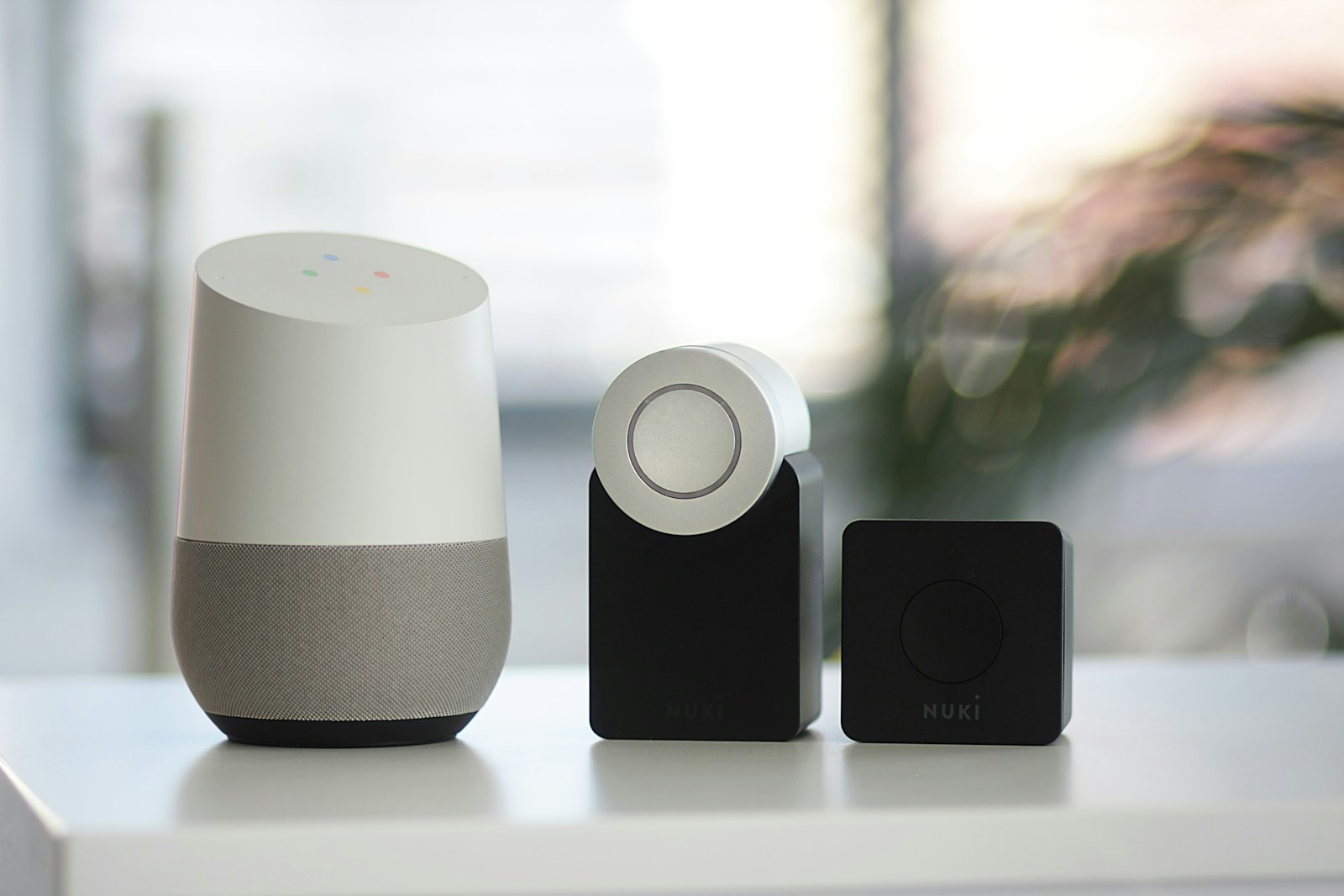Smart home energy management systems are revolutionizing the way we consume energy within our living spaces.
By integrating smart devices and automation technology, homeowners can optimize their energy usage, leading to a significant reduction in their environmental impact. These systems allow for better control and monitoring of energy consumption, empowering individuals to make informed choices that promote sustainability.
One of the key benefits of smart home energy management is the ability to lower overall energy consumption, resulting in reduced greenhouse gas emissions. By utilizing energy-efficient appliances, smart thermostats, and automated lighting systems, households can lessen their carbon footprint and contribute to a healthier environment. Through the seamless integration of technology into our homes, we have the opportunity to create a more sustainable future for generations to come.
How Smart Home Devices Contribute to Energy Efficiency
Smart home devices play a crucial role in enhancing energy efficiency within households. These devices are designed to automate and control various systems, allowing homeowners to monitor and adjust energy consumption on a real-time basis. By integrating smart thermostats, lighting controls, and energy monitoring systems, homeowners can optimize their energy usage and reduce unnecessary wastage. Additionally, smart home devices can adapt to users’ behaviors and preferences, further increasing energy savings by efficiently managing power usage.
One of the key ways smart home devices contribute to energy efficiency is through their ability to detect and respond to changes in environmental conditions. For instance, smart thermostats can adjust temperature settings based on occupancy patterns and outdoor weather conditions, ensuring optimal comfort while minimizing energy consumption. Similarly, smart lighting systems can be programmed to automatically turn off lights in unoccupied rooms or adjust brightness levels to reflect natural lighting, reducing electricity usage and overall energy costs. By harnessing the power of technology, smart home devices empower homeowners to make informed decisions that promote sustainable living and environmental stewardship.
Reducing Carbon Footprint with Smart Home Energy Management
Smart home energy management systems offer an innovative solution to reduce carbon footprints and promote sustainable living practices. By utilizing advanced technology to monitor and control energy usage within a household, individuals can significantly decrease their environmental impact. These systems enable users to optimize energy consumption, minimize waste, and lower overall carbon emissions, contributing to a greener and more eco-friendly lifestyle.
Incorporating smart home devices for energy management not only benefits the environment but also leads to cost savings for homeowners. By intelligently regulating energy usage, individuals can lower their utility bills while reducing their carbon footprint. This dual advantage makes smart home energy management an attractive option for those looking to embrace sustainable practices without compromising on comfort or convenience.
The Role of Automation in Sustainable Living
Automation plays a crucial role in promoting sustainable living by optimizing energy consumption and reducing waste. Smart home devices, equipped with automated features, allow homeowners to monitor and control their energy usage more efficiently, leading to lower utility bills and a decreased carbon footprint. By automating the management of lighting, heating, cooling, and other systems, individuals can enjoy convenience while also contributing to environmental preservation.
Incorporating automation into sustainable living practices not only saves time and effort but also enhances the overall quality of life. With the ability to schedule routines and adjust settings remotely, smart home technology empowers individuals to make eco-friendly choices effortlessly. From regulating indoor temperatures based on occupancy to managing energy usage during peak hours, automation fosters a greener lifestyle that is both environmentally conscious and technologically advanced.
Monitoring Energy Usage for a Greener Home
Understanding how energy is being used in your home is fundamental for creating a greener living space. By monitoring energy usage, homeowners can pinpoint areas of inefficiency and make necessary adjustments to reduce wastage. This proactive approach not only helps in decreasing energy bills but also contributes significantly to environmental conservation efforts.
Implementing smart home technology for energy monitoring provides real-time insights into consumption patterns, allowing for informed decision-making on energy usage. By utilizing smart devices and energy management systems, homeowners can track and analyze their energy consumption trends, enabling them to adopt more sustainable practices. This level of awareness empowers individuals to take control of their energy usage and work towards a greener home environment.

Maximizing Energy Savings through Smart Home Technology
Smart home technology has revolutionized the way we manage energy consumption in our homes. By utilizing smart thermostats, lighting systems, and appliances, homeowners can maximize energy savings and reduce their utility bills. These devices enable users to remotely control and monitor their energy usage, allowing for more efficient management of electricity, heating, and cooling.
One of the key benefits of smart home technology is its ability to adapt to the specific needs and routines of homeowners. By learning household patterns and preferences, smart devices can automatically adjust settings to optimize energy usage. This proactive approach not only saves energy but also enhances the overall comfort and convenience of the home environment.
The Cost-Effective Benefits of Smart Home Energy Management
Incorporating smart home energy management systems offers a multitude of cost-effective benefits for homeowners. By leveraging advanced technologies to monitor and optimize energy usage, households can significantly reduce their utility bills over time. These systems enable users to track their energy consumption in real-time and identify areas where energy is being wasted, allowing for targeted adjustments to enhance efficiency.
Moreover, smart home energy management solutions often come equipped with features that enable users to schedule and automate energy-intensive tasks, such as heating, cooling, and lighting. This level of automation not only reduces the overall energy consumption of a home but also helps to prolong the lifespan of appliances and systems through optimized usage. As a result, homeowners can enjoy long-term cost savings while contributing to a more sustainable and environmentally friendly lifestyle.
Improving Indoor Air Quality with Energy-Efficient Systems
Smart home technology offers a promising solution for enhancing indoor air quality by integrating energy-efficient systems. These systems have the ability to regulate temperature and humidity levels within the home, thus reducing the likelihood of mold growth and the proliferation of allergens. By investing in energy-efficient HVAC systems and air purifiers, homeowners can create a healthier indoor environment for themselves and their families.
Furthermore, the use of smart home energy management systems allows for precise control over ventilation and filtration systems, ensuring that air quality is continuously monitored and optimized. This not only improves the health and well-being of occupants but also contributes to energy savings by preventing unnecessary energy consumption. Ultimately, the combination of energy-efficient systems and smart home technology presents an effective means of improving indoor air quality and promoting a more sustainable living environment.
Smart Home Energy Management and Renewable Energy Sources
Smart home energy management systems are increasingly integrating renewable energy sources to enhance sustainability and efficiency. By harnessing solar, wind, or geothermal power, homeowners can reduce their reliance on traditional energy grid sources, ultimately decreasing their carbon footprint. These renewable energy sources provide a clean and environmentally friendly alternative to fossil fuels, helping to combat climate change and promote a more sustainable future.
Integrating renewable energy sources into smart home energy management systems not only benefits the environment but also offers financial advantages to homeowners. By generating their own electricity through solar panels or wind turbines, homeowners can lower their energy bills and even earn money by selling excess energy back to the grid. This shift towards renewable energy sources empowers individuals to take control of their energy consumption and contribute to a more sustainable energy ecosystem.
Creating a Greener Future with Smart Home Technology
Smart home technology is revolutionizing the way we live by offering sustainable solutions to reduce our environmental impact. By incorporating smart energy management systems into our homes, we can significantly lower our carbon footprint and contribute to a greener future. These systems allow for more efficient use of energy resources, leading to reduced waste and a more sustainable lifestyle overall.
With the integration of renewable energy sources such as solar panels and smart thermostats, smart homes have the potential to further enhance their eco-friendly capabilities. This synergy between technology and sustainability not only benefits the environment but also offers cost-effective advantages to homeowners in the long run. By embracing smart home technology, we are taking crucial steps towards building a greener and more sustainable future for generations to come.
